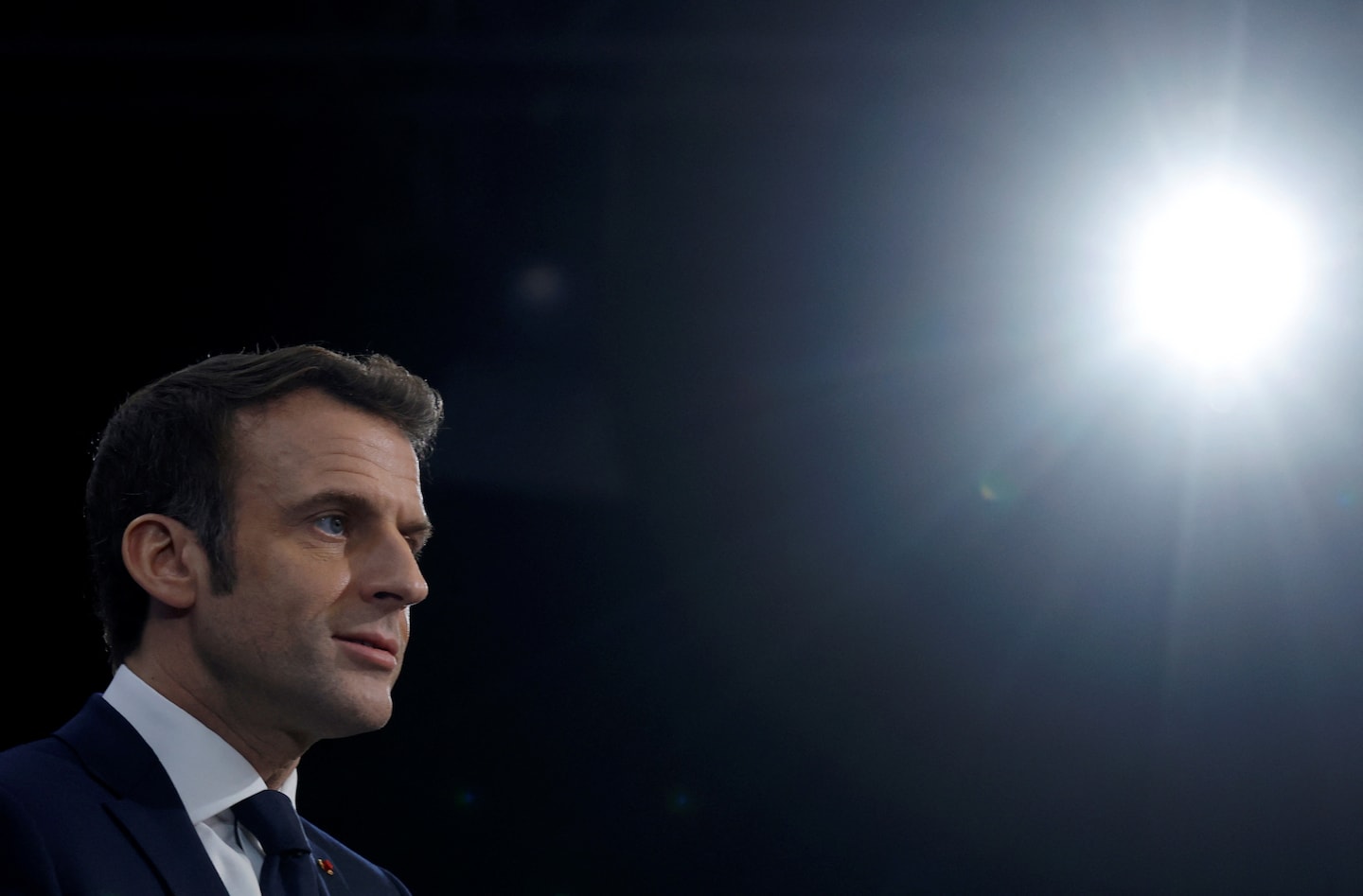
Macron is still expected to officially announce his candidacy before the March 4 deadline, and he remains the clear favorite to win the two-round vote in April. But this week’s complications have been a stark reminder that French presidential elections can produce surprises and prove assumptions wrong.
Two of the candidates polling strongest behind Macron — Marine Le Pen and Éric Zemmour of the far right — have yet to secure the 500 signatures from elected officials that are required to stand in the election.
Le Pen paused her public campaign this week, saying she would throw all her energy behind a last-ditch effort to win over sponsors. Zemmour said he would similarly dedicate time to calls with mayors and other officials. Both candidates were short more than 80 signatures, according to a tally from the Constitutional Council released on Thursday.
In opinion polls, Le Pen is the choice of about 17 percent of respondents — second behind Macron, who for months has been stable at about 25 percent. Facing Macron in a runoff in 2017, Le Pen finished with nearly 34 percent of the vote, while he took about 66 percent.
Story continues below advertisement
“The French must be able to vote for their ideas and their candidate, it is simply the republican pact,” Le Pen said in a video message to mayors on Monday, suggesting that officials who failed to back her were standing in the way of the will of the people. “If this pact is broken, the presidential election will have no value,” she said.
Le Pen found a somewhat surprising ally for her argument in Prime Minister Jean Castex, who urged elected officials that it was a “democratic act” to back a candidate and that a signature at this stage didn’t have to be an endorsement. The center-right mayor of Cannes, meanwhile, said he would be a sponsor for Jean-Luc Mélenchon of the far left — with whom he said he vehemently disagrees — “so that demagogues don’t play victims.” Mélenchon had been short 58 signatures on Monday but reached 500 by Thursday.
Even without having declared his candidacy, Macron long ago crossed the required threshold of sponsorships. His late entrance into the race isn’t unusual for an incumbent. But it has drawn criticism from his challengers, who argue he has been deliberately stalling to avoid scrutiny of his five-year term.
Story continues below advertisement
Some supporters have suggested that he was waiting for a break between crises to make his announcement, but that the omicron wave of the coronavirus was rapidly followed by the faceoff with Russia over Ukraine.
Macron also may have been holding out to discern who his main challenger will be — and what, as a result, his strategy should look like.
A former investment banker and economy minister, who formed his own movement to support his candidacy in 2017, Macron has leaned to the left and to the right at various points while in office — and upset both camps. He has championed efforts to address climate change and mapped out a vision for what Europe needs to do to counter far-right populism. He has also pushed security laws that critics say threaten civil liberties. And his proposals to combat “Islamist separatism” and to “reform” the practice of Islam in France have provoked charges of Islamophobia.
The candidate who appeared to have the best chance of beating Macron in a direct runoff, if she could get that far, was Valérie Pécresse, of the center-right Republicans party. She had been polling nearly even with Le Pen. And she had no problem getting her signatures. The latest count had her with 2,143 sponsors, compared with Macron’s 1,463.
Story continues below advertisement
Doubts over her candidacy have mounted, however, and her poll numbers have fallen.
In a widely criticized speech last week, she appeared to reference the far-right and anti-immigrant “great replacement” conspiracy theory. Pécresse later said her use of the term was accidental, and she distanced herself from the far right. But her critics saw the incident as representative of a candidacy that has been disrupted by repeated missteps.
Then, on Wednesday, France’s leftist Libération newspaper published an investigation suggesting that voter fraud may have played a role in the primary that made Pécresse the Republicans’ candidate in December. According to the paper, the party’s membership registry contained names of people who are dead or never existed. In one case, the paper said, a member turned out to be a dog. The report didn’t say, however, whether any meaningful portion of votes cast in the members-only primary could be traced to nonexistent individuals.
Story continues below advertisement
Pécresse denounced the report as a “grotesque, destabilizing manipulation” aimed at undermining her candidacy. “I have always respected the rules,” she said on French television on Wednesday night, adding that the accusations were “pure polemic.”
Her party said it would take legal action against the paper.
Even with all the problems the right is facing, parties on the left are faring far worse.
The French left’s decline has been particularly steep for the Socialist Party, whose presidents governed the country for two out of the past four decades.
The party’s candidate, Paris Mayor Anne Hidalgo, polls at between 1 and 3 percent and has failed to spark any noticeable public interest in her campaign.
Story continues below advertisement
The Socialists have lost a sizable share of voters to Macron and to abstentions over what many former supporters see as a failure of the left to forcefully reject far-right proposals, or to implement their own under the presidency of François Hollande.
Having already secured the backing of enough elected officials but facing a looming defeat in April, Hidalgo had little sympathy for her competitors this week.








